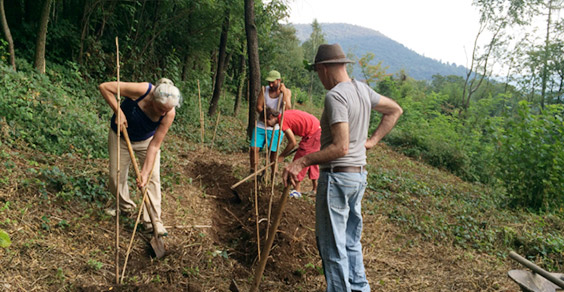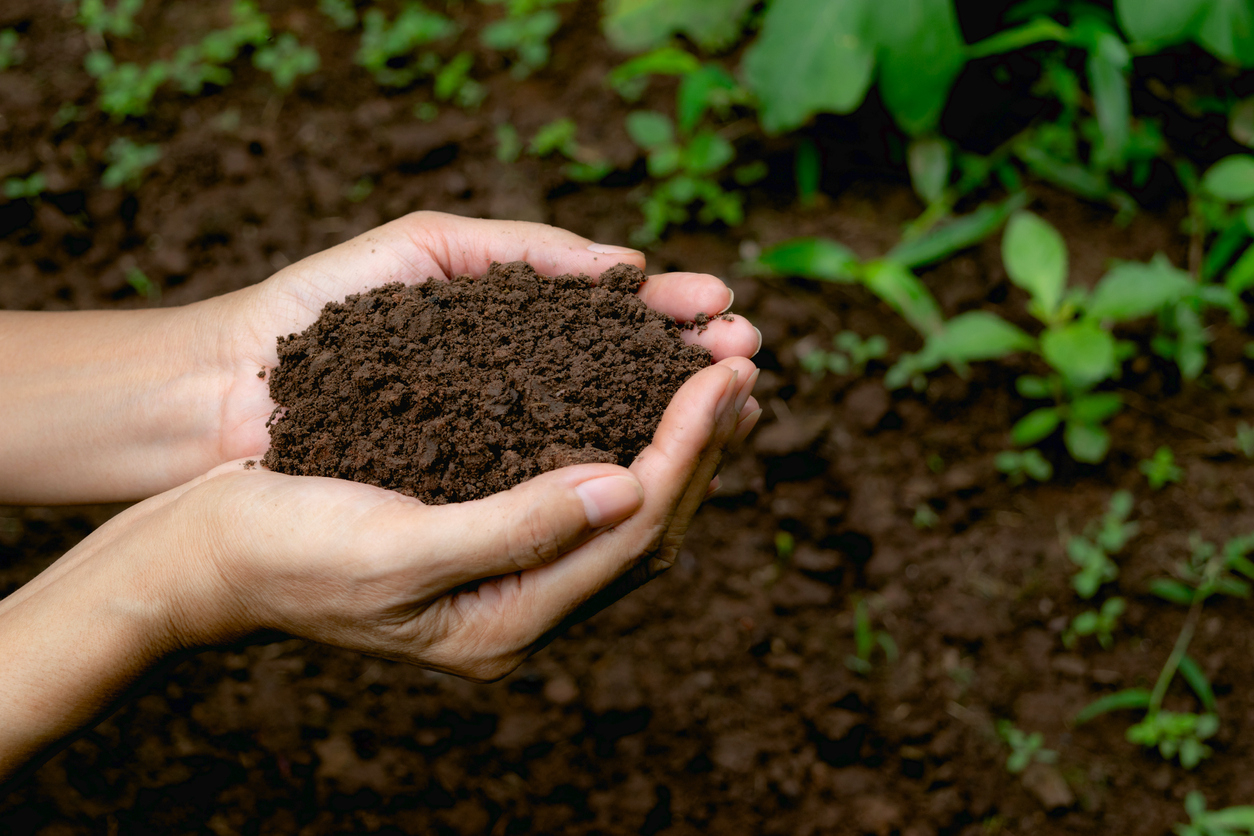2024 Valorisation and Renegeration of Centro's Forest
In 2024, we placed a paramount emphasis on the regeneration of our extensive forested areas which for decades were creating a vibrant ecosystem and natural environment around Centro. We have selectively removed and replaced unhealthy trees to enhance the overall vitality and biodiversity of the ecosystem. This endeavor not only contributes to the restoration of forest health but also bolsters climate resilience, ensuring a sustainable environment for us and future generations.
Effective microorganisms (EM) since 25 years at Centro
Since 25 years, we have been avoiding to use of chemicals in our housekeeping and cleaning activities as much as possible. We use biological handsoaps. Most of our cleaning agents are biological and biodegradable. Furthermore since 25 years we've used EM (Effective Microorganisms) for just about all our cleaning tasks.
In simple terms, EM stands for Effective Microorganisms, which are a mix of "good" bacteria, fungi, and other tiny organisms that work together to improve the health of soil, plants, animals, and even people. Think of EM as a natural booster that helps nature work better, whether it’s breaking down waste, improving soil fertility, or even cleaning water. It's like giving a helping hand to the invisible workers in nature!
- Bacteria (like the ones that help make yoghurt)
- Yeast (used in baking and brewing)
- Fungi (that break down organic material in soil)
Prof. Higa of Japan introduced Effective Microorganisms (EM) in the 1980s in order to find an alternative to the use of chemicals in agriculture. The discovery of EM has not only fulfilled the initial aim but also revealed unexpected results in a variety of application fields. Nowadays EM technology is a very effective tool for environmental clean up and an excellent help in organic farming worldwide.
The microorganisms are naturally existing and are not modified or manipulated in any way and are cultured according to a specific method. Some of which are known to produce bioactive substances such as vitamins, hormones, enzymes, antioxidants and antibiotics that can directly, or indirectly enhance plant growth and protection.EM comes in a liquid form and consists of naturally-occurring beneficial microorganisms.
Throughout the world, EM applications are made in the farming, livestock, environmental clean-up (polluted waterways, lakes and lagoons), and health industries. What EM is not, is not harmful, pathogenic, genetically-engineered/modified (GMO), nor chemically-synthesized.
(Learn more https://www.agriton.co.uk/em-story)
 2013 - 2015 Permaculture project
2013 - 2015 Permaculture project
From 2013 to 2015, Centro supported an educational Permaculture Project, led by John Button, a world-known permaculture expert and Francesca Simonetti, the Italian agronomyst.
Permaculture, a holistic approach to agricultural design, emphasizes sustainable and self-sufficient ecosystems that work in harmony with natural processes. By integrating principles derived from ecology, traditional land-use practices, and modern science, permaculture fosters biodiversity, conserves water, and enhances soil fertility, ultimately contributing to food security and environmental stewardship. As global challenges such as climate change and resource depletion intensify, the adoption of permaculture practices becomes increasingly vital for fostering a sustainable future.
Our educational project sought to cultivate a vibrant community of permaculture enthusiasts and practitioners, build strong social bonds. By fostering connections among individuals who share a commitment to sustainable practices, we aimed to enhance knowledge sharing, collaboration, and mutual support. This communal approach not only enriches the learning experience but also strengthens the resilience of the local ecosystem, thereby creating a robust network dedicated to promoting permaculture principles and environmental stewardship.
 Bokashi Method of organic waste composting
Bokashi Method of organic waste composting
Being a vegetarian place since 40 years, we produce a certain volume of precious organic matter. In 2014 - 2016, we implemented Bokashi Method of kitchen organic composting to learn the method and erinch our soils and fertilse the plants. Bokashi is the most energy efficient way of breaking down organic matter. The fermentative decomposition creates a pre-digested, nutrient dense ferment that can be used as a soil improver and or an organic fertiliser. Effective Microorganisms (EM®) added to the organic matter work by way of competitive exclusion to create an environment in which fermentative anaerobes can dominate. This dominance leads to the break down of complex organic structures into simpler soluble ones to create a pre-digested food for the soil. The microbes also produce a number of bio-active substances, like enzymes, vitamins, antimicrobials and phytonutrients which favours the development of plants and helps prevent diseases. The application of Bokashi into and onto your soils will help create a healthier and more resilient soil.